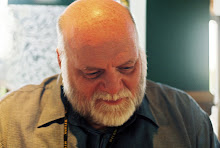Wave After Wave
The first time my oldest son saw the Atlantic Ocean was late in the evening after we set up camp on a Georgia coastal island. We mounted the dune that separated our camp from the sea and the poor little guy was over whelmed by what he encountered. He began to wail like we’d never heard and as the waves rolled in he held his hands up as if pushing the them back to sea screaming, “No, no. Stop.” But the waves didn’t stop and as young parents we were concerned that he understand that the waves would neither stop nor harm him. We dragged him down the beach toward the surf until we finally realized that our efforts to normalize the phenomenon were traumatizing him and we stopped, allowing him to retreat to the top of the dune. We thought that perhaps he needed to see it in the bright daylight without the deep shadows of twilight. In the morning, we strolled across the same dune only to see him react the same way. Eventually that day our 4 year old could play contentedly a little closer to the surf but he did so with one eye on the swells that threatened him so inexplicably.
Grief is much like the surf. It builds in a swell of sorrow and crashes in on us, pushing and pulling, turning and twisting our emotions. As it rolls up on the beach of our consciousness, it hisses out into drops of salty water leaking from our eyes - trickling down our cheeks in little rivulets that eventually run dry until the next wave. Some of us believe that there is something to be feared or at least avoided in the ebb and flow of grief. We believe that incoming wave is somehow harmful and we try to hold it back in as a futile manner as my 4 year old. The Bible makes it clear that grief is normal and healthy. The Book of Lamentations is an example of deep sorrow and sanctified grief. Ecclesiastes clearly states that there is a “time to morn.” The joy of religious assurance for eternity is not meant to stem the tide of human grief but to give hope for the future end to such pain. But to be human is to be awash in loss and grief and the waves keep rolling in.
Over the years, we discover that there are more and more losses. The swell of grief we once tried to ignore or push back is now the levee busting storm surge of complicated grief and we find we need more than the gently leaking of salty tears to express our grief. We may need more than a little help to heal. It makes sense to get that help from a professional. There are grief counselors everywhere; at funeral homes, Hospice, churches and counseling centers. We can’t realistically hold back our grief any more than we can hold back the sea. Sooner or later it pops out somewhere.


2 Comments:
Dear Ken,
You must have experienced this... grief is like a tide, a swell that takes you over, only to recede again. And it keeps coming back, over and over. We cannot keep the tide of grief away, as much as we might like to. And yet, those swells that run through us, leaking out of our hearts and eyes, soften us. For me, this softening has allowed true joy to find a place in me as well. I know this experience of a sad and joyful heart - the richest feeling in the lexicon of human emotion.
Thank you, Ken.
Dear Ken,
I came to your site from another blog who was a nurse. I have recently had my dad pass away here at home. We had hospice come to the house and I had never met the chaplain even though he had contacted me a couple times by phone offering help. Now, reading your stories which are so compassionate and so close to home, I wonder if I should have taken the chaplain up on his assistance. I want to thank you for writing of your experiences with those whom you have known. I find them so touching and you give me hope in a world that is too often hopeless. You also give me company and so I know that I am not alone in how grief has affected me.Thank you and the best to you. Joyce H.
Post a Comment
Subscribe to Post Comments [Atom]
<< Home